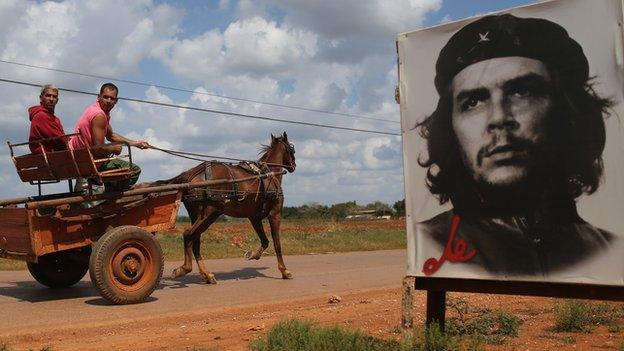Ernesto Guevara: How my father inspired my Cuban motorcycle tours
- Published
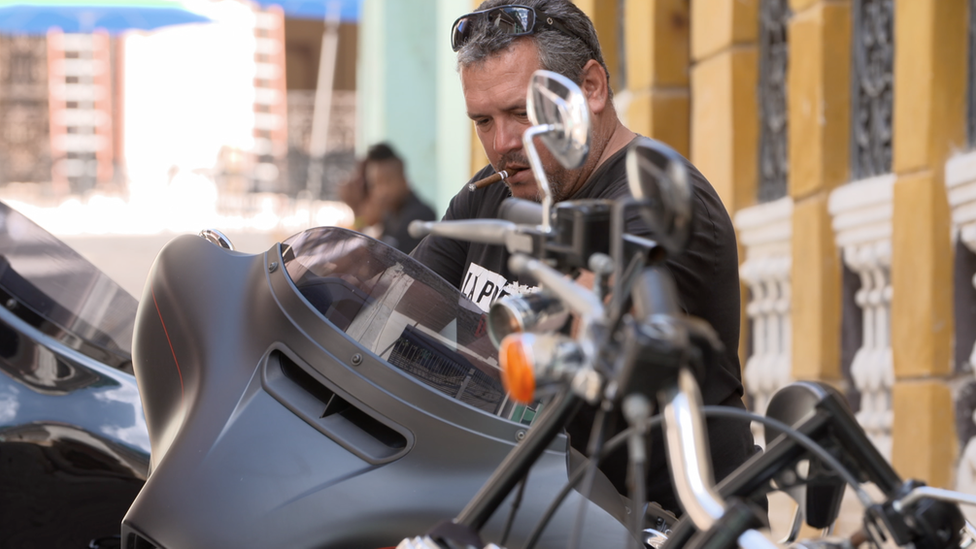
Ernesto Guevara shares his father's love of motorbikes and cigars
On 9 October 1967, guerrilla leader Ernesto "Che" Guevara was executed in Bolivia. Fifty years on, the BBC's Will Grant takes a motorbike tour of Cuba with the leader's son and asks him about the pressures of living under his father's legacy.
At times, the family resemblance is uncanny.
The stubbly beard, the unmistakable nose, the similarity extending down to a smouldering cigar clasped firmly between his forefingers.
Beyond the physical attributes, the youngest son of Latin America's most recognisable revolutionary, Ernesto "Che" Guevara, has inherited another trait from his late father: his love of motorbikes.
"I've always liked mechanics, speed, motorbikes, cars," said 52-year-old Ernesto, named after his father, over a cold drink in a Harley Davidson-themed bar in Havana.
"As a child I was interested in repairing cars and bikes. I suppose it's something I picked up from my old man but wherever it's from, I love it."
Despite the shared passion, the younger Guevara has taken a very different path in life: into tourism.
He runs a motorbike tour company whose only link to Che is in the name, La Poderosa Tours after La Poderosa, the famous Norton 500cc on which his father crossed the Americas in the Motorcycle Diaries.
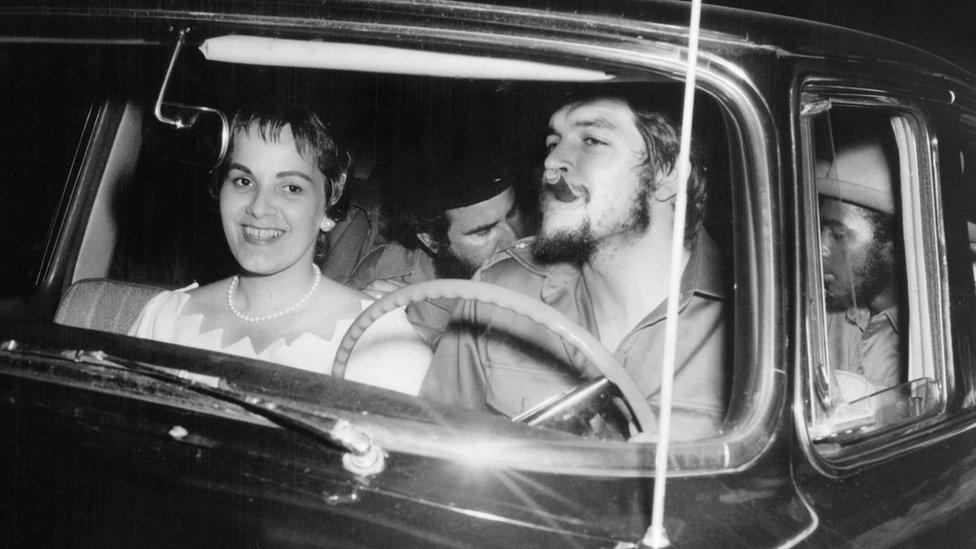
Che Guevara and Aleida March on their wedding day in Havana in June 1959
La Poderosa Tours is a private company using foreign capital and works with several state-run Cuban companies. It is part of the wave of private enterprise permitted under rule changes by President Raul Castro in 2010, and a far cry from Ernesto's training as a lawyer.
When I joined him on a recent tour, we headed out west, towards the tobacco-growing region of Pinar del Río.
Heads turned on the streets of Havana as the fleet of Harley Davidsons swept out of the capital.
The motorbike is proving an increasingly popular way to see the island. The tour group was a broad cross-section of nationalities including riders from the United States, China, Britain and Argentina.
"Americans my age have never been able to come to Cuba and now we can," reflected amateur bike enthusiast Scott Rodgers from Massachusetts when we stopped for coffee.
"I don't know long that is going to last so I thought I had to jump through this window while I could."
Others were directly drawn to the link to Che, including Eduardo Lopez, a fellow Argentine.
"Of course he is part of the attraction," Eduardo said. "Travelling the world by motorbike is my hobby but we specifically came on this tour because Che lived for years in my home town of Córdoba. So we feel a link to this myth, this figure."
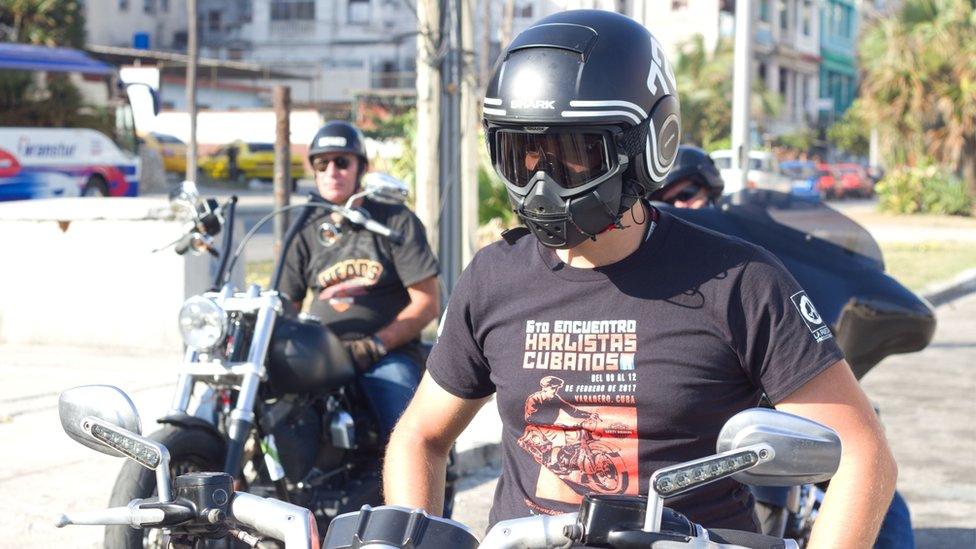
Some tourists say they take the tour because they are interested in the Guevara history
Despite the famous surname, Ernesto insists he is very much his own man.
"I always try to not link things. Anything I've achieved I've done as Ernesto Guevara March - as myself, as a human being," said the son from Che's second marriage to Cuban Aleida March.
"I do everything with a sense of responsibility. If it works out, then great. If not, fair enough."
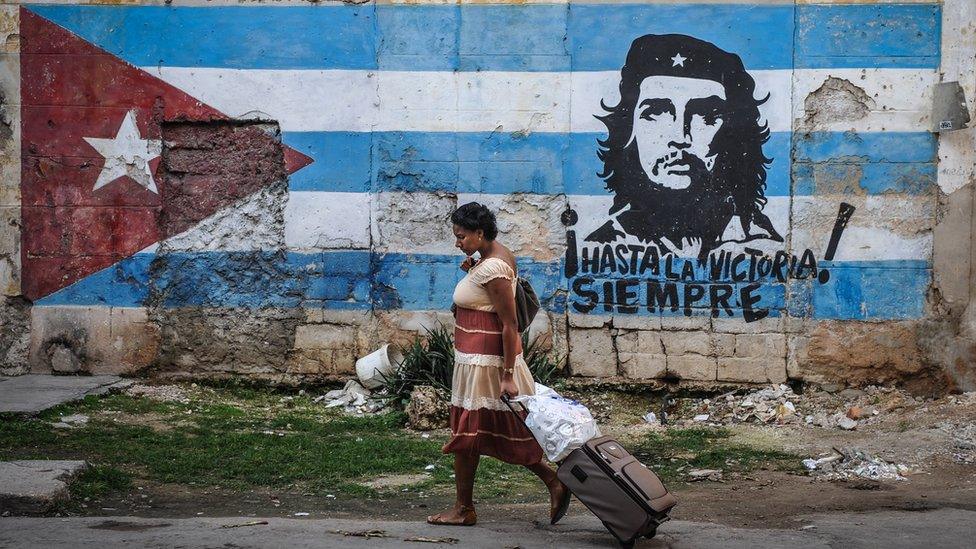
Che Guevara's image - seen here in Havana - is used in graffiti worldwide
So far, it's a business philosophy that has served him well. Last year saw record numbers of tourists visit Cuba and business at La Poderosa Tours is brisk.
He knows he has his critics though, particularly in Miami. It is often pointed out that after being born with such Marxist credentials, the younger Guevara has made a capitalist's career in tourism.
It's not a charge that worries him, however.
"It has nothing to do with whether it's socialist or capitalist," he argued with a hint of indignation in his voice.
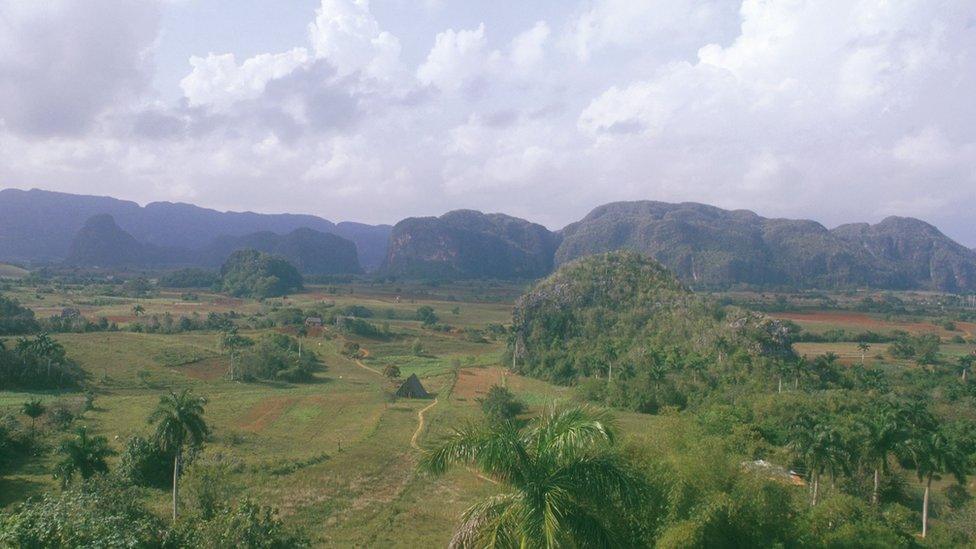
Pinar del Río, west of Havana, is known for its tobacco plantations
"It makes no sense to focus on that issue. For me, we're doing a good job, one that helps my country."
Our tour carried on to a place synonymous with the darker side of his father's image, the Cabaña Fortress.
It was here that after the revolutionaries took power, Che presided over the revolutionary trials of members of the ousted military government. Dozens were executed in what critics of the Cuban Revolution say was summary justice.
Fifty years after his father's death, Ernesto still leaps to his defence insisting the trials were "normal". I pointed out that such a view will incense some families the other side of the Florida Straits.
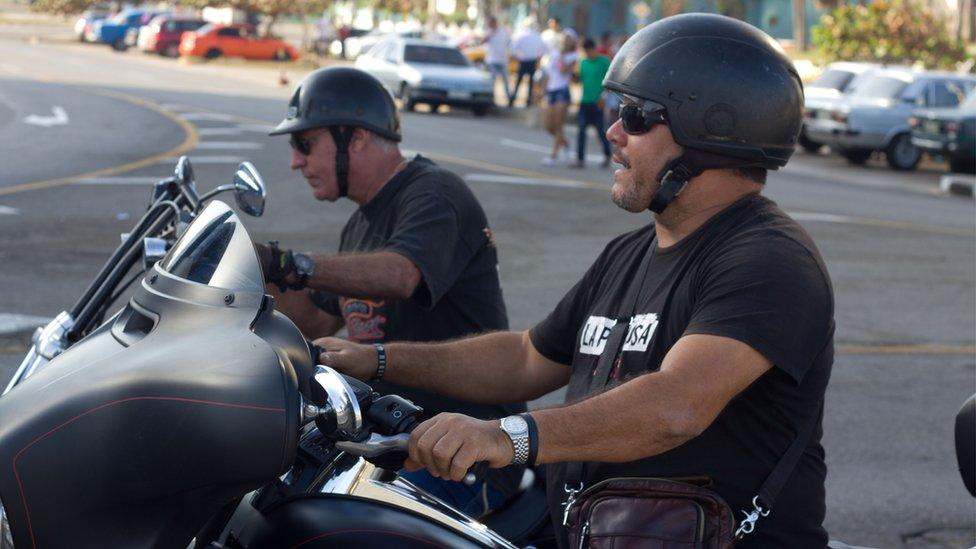
Ernesto Guevera (R) named his company after his father's bike, La Poderosa
"The enemy can say what he likes. The people of Cuba know why it was done, how it was done, and above all in order to bring tranquillity to all Cuban society that they weren't going to pardon murderers of that kind," he said looking out across the bay to Havana.
"So I'm very calm, my soul is at peace, and my father's soul is too."
Ernesto readily admits it wasn't always easy growing up with a famous father - or rather, without one. Che Guevara was executed in Bolivia in 1967 when Ernesto was just two.
"Of course, at school sometimes you'd be pointed out as 'Ernesto Guevara', but generally you were known as 'Ernesto Guevara March', which is the person you are. The son of both your father and your mother."
And as the worldwide fascination with his iconic father shows no signs of slowing down, this has become a point the younger Ernesto is keen to stress.
"Those who love me, love me for the person I am. Not just for the name Guevara."
- Published29 August 2023
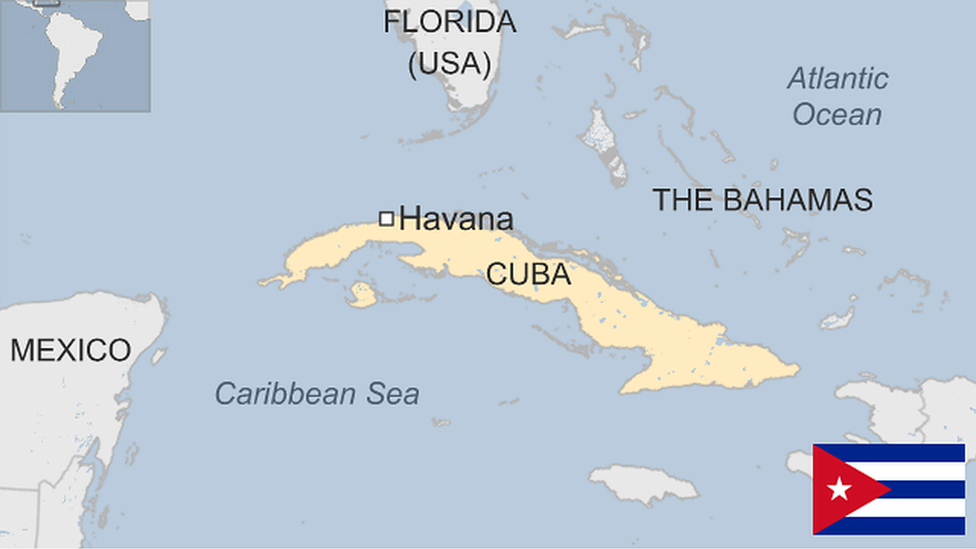
- Published11 January 2016
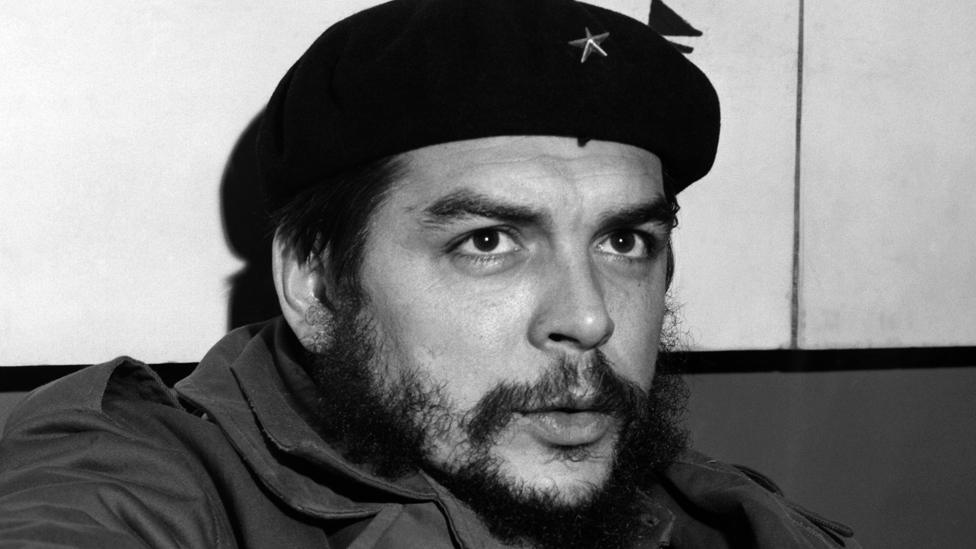
- Published3 October 2017
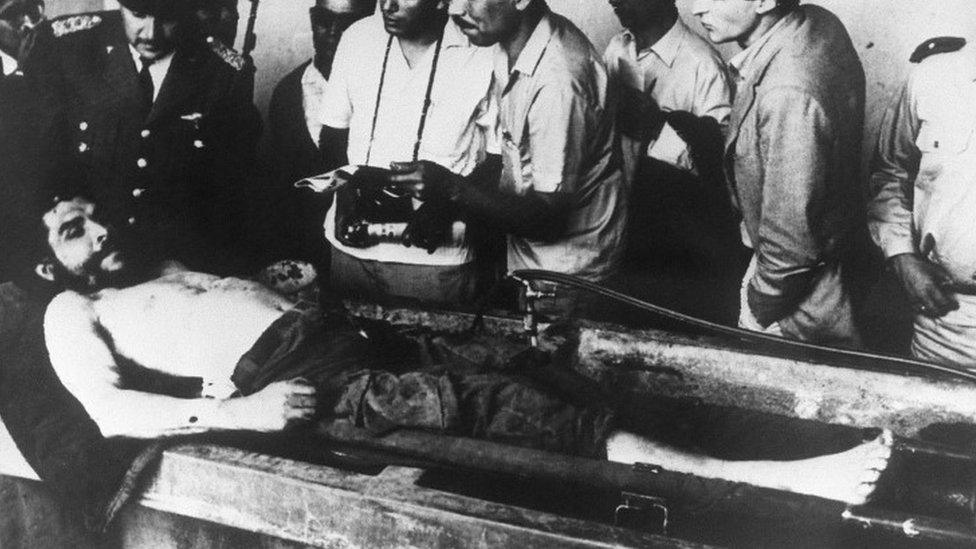
- Published12 September 2017
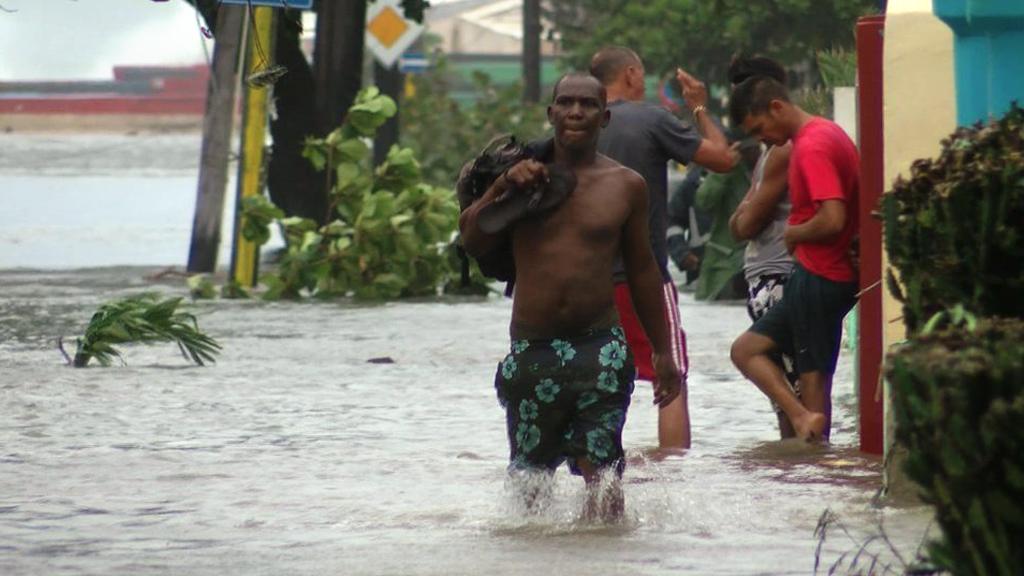
- Published8 April 2015
